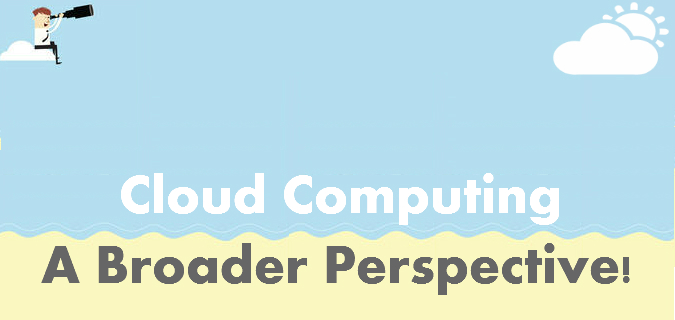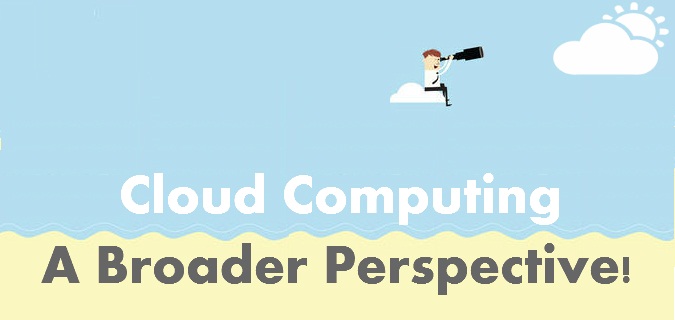Cloud computing: A broader perspective!
Cloud computing
In my last blog, we saw various definitions of Cloud computing, along with conclusive definition as per me. This content will give you a broader perspective of Cloud computing.
Cloud computing as briefed is a computing paradigm with virtual network of remote servers allowing users to store, process and access data; providing on-demand computational services with features like elasticity, scalability, security and redundancy.
Cloud symbol is used to represent an Internet in diagrams and flowcharts. Symbol represents a set of varied devices that are networked together. This is how originated a symbol of Cloud.
Cloud computing is an old concept, although its origin is still a stuff of dispute. Research says, this concept was first implemented in 90’s but its practice as an Elastic cloud started in 2006. Now it is a trend, invading other technologies and rapidly catering many businesses. ESDS Software Solutions Pvt. Ltd. One of the top cloud service providers in India launched cloud services in India in 2010.
Cloud, according to services offered is classified as Infrastructure as a service (IaaS), Platform as a service (PaaS), Software as a service (SaaS).
- IaaS: Provides user computing utilities over the internet as servers and storage, also called as utility computing.
- PaaS: Facilitates user with applications supported by web based tools to be run on different platforms (i.e. software environments).
- SaaS: Provides a complete application access to user (irrespective of type of OS on client’s system), when it is running on another system.
Types of Cloud services depending upon the application of it are Private, public, community and Hybrid Cloud.
- Private cloud: It is a dedicated cloud, say for an organization that can be hosted internally or externally.
- Public cloud: It is an open cloud made available for general users by the cloud service provides. Users shares resources in this cloud.
- Hybrid cloud: It is a composition of two or more clouds (Private cloud, Public cloud, Community cloud).
- Community cloud: It is shared by several organizations, managed and hosted internally or externally.
Cloud computing is trending in numerous businesses like IT, Telecom, Health care sectors, Hospitality, Entertainment, eCommerce, Universities, etc. and it has many more areas to sprout in.
Many SMBs are adopting cloud due to its varied and efficient features like Universal access, Cost savings, Flexibility, productivity, choice of customization, environmental and economic benefits.
- Embrace the Future with Cloud Computing! - September 8, 2015
- Cloud computing impact on growth of ecommerce applications - August 25, 2015
- 6 Reasons that Cloud Computing is transforming Banking Sector - August 24, 2015

